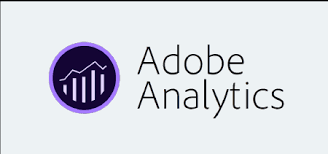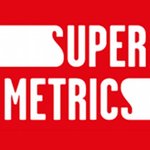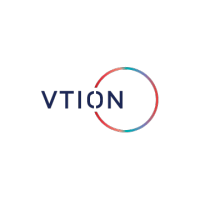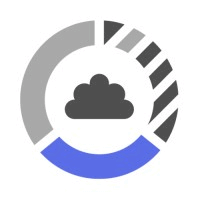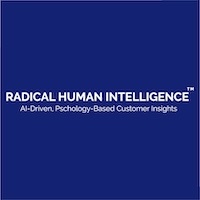What Are The Recent Trends In Marketing Analytics Tools?
The world of marketing has changed dramatically in recent years, thanks to the rise of digital marketing and the ongoing expansion of technology. To keep up with the ever-changing marketplace, firms use marketing analytics solutions to obtain insights and make data-driven decisions.
We will look at the most recent trends in marketing analytics tools that you should keep in mind when making a purchase.
1. Artificial Intelligence (AI) And Machine Learning (ML): AI and ML have become essential components of marketing analytics solutions, enabling firms to analyze massive volumes of data and uncover patterns and trends in real time. This technology also assists in automating procedures, optimizing marketing, and forecasting consumer behavior, allowing organizations to stay ahead of the competition.
2. Cross-Channel And Multi-Touch Attribution: As the number of channels and touchpoints grows, marketing teams are searching for technologies that can provide a comprehensive perspective of their customers' journeys. Cross-channel and multi-touch attribution systems employ powerful algorithms to assign conversions to numerous marketing touchpoints, delivering significant insights into the success of each channel.
3. Personalization: As customers want a tailored experience from the companies with which they interact, businesses have prioritized personalization. Marketing analytics solutions with AI capabilities can evaluate customer behavior and insights to deliver personalized suggestions, resulting in a more personalized and engaging experience for the consumer.
4. Real-Time Data Analysis: In today's fast-paced corporate world, real-time data analysis is critical for making quick and educated decisions. Real-time data analysis technologies can help organizations adapt swiftly to market changes, optimize advertising, and increase client engagement.
5. Integration With Other Tools And Platforms: Most firms utilize a range of marketing tools and platforms, including CRM, social media, and email marketing, to mention a few. Integrating marketing analytics tools with these platforms is a recent trend, allowing organizations to centralize their data and receive a full perspective of their marketing efforts.
Benefits Of Using Marketing Analytics Tools
Marketing analytics solutions are vital for any firm that wants to better its marketing tactics and make data-driven decisions. These sophisticated technologies provide several benefits for firms of all sizes and industries.
We will look at the top benefits of adopting marketing analytics tools and how they may help your organization.
1. Measure And Track Campaign Performance: Marketing analytics solutions enable firms to monitor and evaluate the effectiveness of their marketing initiatives. This covers measures like website traffic, click-through rates, and conversion rates. Businesses that analyze these metrics can discover which campaigns are functioning well and which require improvement, allowing them to make modifications and optimize their tactics for better outcomes.
2. Gain Insights Into Consumer Behavior: One of the most significant features of marketing analytics solutions is the ability to learn about customer behavior. These tools may gather and analyze data from a variety of sources, including social media, email marketing, and website interactions, to provide a complete picture of client preferences and activity. This data can help organizations better understand their target population and adjust their marketing efforts to their specific demands.
3. Predictive Analytics: Many marketing analytics solutions provide predictive analytics, which uses past data to estimate future trends and patterns. This can be incredibly useful in making strategic marketing decisions, such as forecasting client demand, finding future markets, and anticipating competition behavior. Businesses can use predictive analytics to remain ahead of the competition and make data-driven decisions that lead to improved results.
4. Identify The Most Effective Marketing Channels: Marketing analytics solutions can assist firms in determining which marketing channels are most effective for their target demographic. Businesses may understand which channels drive the most traffic and conversions by monitoring their performance, such as social media, email, or paid advertising. This information might help companies better spend their marketing budget and focus on the channels that produce the best results.
5. Cost-Effective: Marketing analytics tools can help firms save time and money by automating data collection and analysis procedures. This eliminates the need for manual data entry, lowering the danger of human mistake. With the correct technologies in place, businesses can make data-driven choices more quickly and accurately, resulting in cost savings and enhanced efficiency.
6. Increase ROI And Revenue: Marketing analytics solutions can help organizations increase their return on investment (ROI) and revenue. Businesses that have a better understanding of their customers and use more successful marketing methods can attract more customers, improve sales, and eventually drive higher profits.
Important Factors To Consider While Purchasing Marketing Analytics Tools?
When it comes to selecting the best marketing analytics tools for your organization, numerous criteria must be carefully addressed. These tools can have a significant impact on your marketing efforts and, ultimately, the success of your organization, so you should make an informed decision.
Here are some crucial considerations to consider when choosing marketing analytics tools:
1. Your Business Goals And Objectives: Before looking at different marketing analytics solutions, you should have a solid understanding of your company's goals and objectives. This will assist you in determining which features and capabilities are critical for your organization and which tools are aligned with your long-term objectives.
2. Data Collection And Integration: One of the most important responsibilities of marketing analytics solutions is to collect and arrange data from diverse sources. As a result, it is critical that the tool you select integrates seamlessly with the platforms and channels that your company utilizes to collect data. This will provide a thorough view of your marketing efforts, allowing for more accurate analysis.
3. Data Analysis Types: Marketing analytics systems provide a variety of data analysis options, including customer segmentation, trend analysis, and campaign performance tracking. Consider what form of analysis is most valuable to your company and select a solution that supports those skills.
4. User-Friendliness: The user interface and ease of use of a tool are critical considerations, especially if your company does not have a specialist data analyst. Look for solutions with a simple and intuitive design that allows you to easily access data and reports.
5. Customization And Reporting: Every organization has different needs and reporting requirements. Look for solutions that allow you to customize reports and analysis to meet your specific demands and key performance indicators (KPIs). This allows you to better monitor and track your marketing activities.
6. Assistance And Training: Learning how to utilize a new marketing analytics tool can be challenging, so be sure the provider provides customer assistance and training materials. This will allow you to navigate the tool and make the most of its capabilities.
7. Budget And ROI: Because pricing varies considerably between marketing analytics solutions, it is critical to establish a budget and assess the possible return on investment (ROI) for each product. Consider the value the tool will offer to your firm and weigh it against the expense.
What Are The Key Features To Look For In Marketing Analytics Tools?
Marketing analytics solutions are vital for every organization wanting to stand out in today's highly competitive industry. These technologies provide significant insights into customer behavior and preferences, enabling businesses to make data-driven decisions and develop more effective marketing campaigns. However, with so many options accessible on the market, it might be difficult for a buyer to navigate and select the appropriate tool.
To make an informed decision, here are the important elements to look for in marketing analytics tools:
1. Data Integration And Visualisation: Marketing analytics tools must be able to combine and evaluate data from a variety of sources, including social media, email campaigns, web analytics, and customer relationship management (CRM) systems. It should also include user-friendly dashboards and visuals to assist people grasp complex data.
2. Complete Reporting: The solution should be able to generate complete reports with real-time insights into important performance indicators including client acquisition expenses, conversion rates, and ROI. This tool enables firms to precisely measure the efficacy of their marketing campaigns and make data-driven decisions.
3. Sophisticated Segmentation And Targeting: A high-quality marketing analytics platform should include sophisticated segmentation and targeting features. This tool enables organizations to identify and target specific client segments based on their habits, tastes, and demographics, increasing the effectiveness of their marketing initiatives.
4. Predictive Analytics: The solution should include predictive analytics capabilities, which analyze previous data to estimate future patterns and behaviors, allowing firms to plan for future marketing plans and campaigns.
5. Real-Time Monitoring: With the ever-changing digital landscape, real-time monitoring has become a critical element in marketing analytics tools. It allows organizations to follow the performance of their campaigns in real-time and make required adjustments to improve their outcomes.
6. Customization And Scalability: Look for a solution that can be customized to meet your specific business demands and scale as it grows. It should also work seamlessly with existing marketing and analytics platforms.
7. Marketing Attribution: This tool helps businesses understand which marketing channels and campaigns are delivering the most conversions and revenue, helping them to better manage their marketing budget.
Which Industries Can Benefit The Most From Marketing Analytics Tools?
Marketing analytics solutions are critical for organizations in the digital age, allowing them to make data-driven decisions that improve their marketing strategy and increase their ROI. While these tools are useful in all businesses, some may benefit more than others.
The following industries can benefit the most from marketing analytics tools:
1. E-Commerce: E-commerce businesses rely significantly on online sales and digital marketing campaigns to generate revenue. Marketing analytics solutions allow them to track and analyze client behavior, purchasing trends, and preferences in order to design customized marketing campaigns that attract new customers while retaining existing ones. These technologies also provide information about website traffic, conversions, and revenue, allowing e-commerce enterprises to improve their online presence and drive sales.
2. Finance & Banking: The finance and banking industries have access to massive volumes of data, making it difficult to make sense of anything. Financial organizations can use marketing analytics solutions to examine client data, transactions, and behavior in order to make more educated decisions. These tools also help discover profitable consumer segments, create targeted marketing campaigns, and track the effectiveness of these efforts.
3. Healthcare: Marketing analytics solutions can help healthcare firms improve the patient experience, promote services, and retain customers. These solutions can use patient demographics, appointment data, and customer feedback to create marketing campaigns and increase patient satisfaction. They can also track the effectiveness of marketing campaigns, allowing healthcare organizations to better spend resources.
4. Hospitality: The hotel sector relies significantly on client satisfaction and loyalty. Marketing analytics solutions enable hospitality firms to track consumer feedback, preferences, and booking patterns, allowing them to provide more personalized experiences to their visitors. They can also use these technologies to monitor the effectiveness of marketing initiatives and make data-driven decisions to boost bookings and revenue.
5. Retail: Retailers can utilize marketing analytics systems to track customer behavior and preferences, allowing them to build more targeted marketing campaigns and incentives. These solutions can use sales data, customer demographics, and purchase trends to improve inventory, pricing, and merchandising tactics. Retailers can also utilize these tools to assess the effectiveness of marketing campaigns and alter their strategies accordingly.
Conclusion
In conclusion, marketing analytics solutions are critical for firms of all sizes and industries. These tools provide useful insights and data that can be used to better marketing tactics, increase ROI, and accelerate business growth. With so many options on the market, it can be difficult to find the best tool for your organization. Before making a decision, you should evaluate your individual objectives and goals, as well as considerations like features, price, and compatibility with your existing systems.
It is also encouraged to use free trials and demonstrations to test the tool and its capabilities before committing to a long-term contract. Overall, investing in a solid marketing analytics solution will help your company gain a competitive advantage and increase marketing efforts. We hope this guide has given you enough information to make an informed decision and find the best fit for your business.




